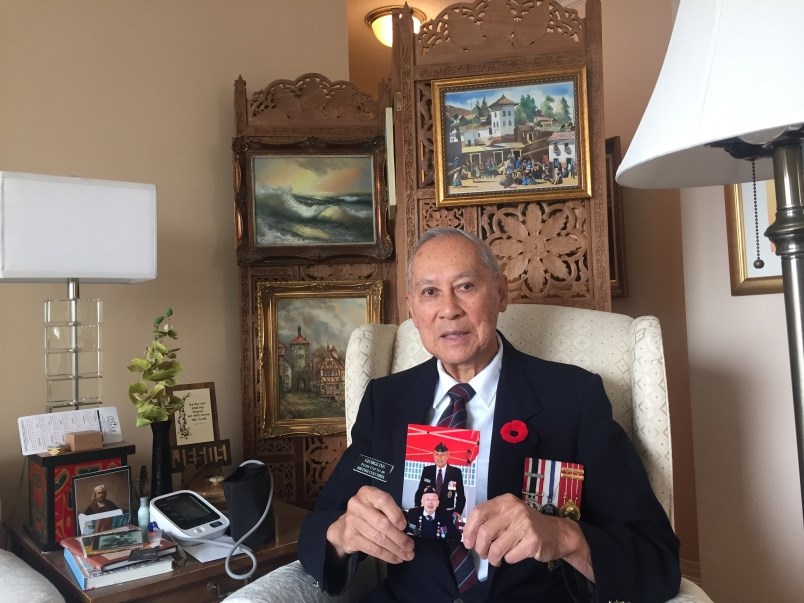Many have gone to war to prove their allegiance to their country, but for hundreds of Chinese-Canadians it went beyond that.
It was a way to prove themselves worthy of Canadian citizenship, explained George Ing, a Richmondite and veteran of the Royal Canadian Armed forces.
"Before the Second World War, Chinese Canadians couldn't vote or participate in certain professions, such as a doctor, teacher and engineer," said Ing.
Despite that, Chinese Canadians risked their lives for Canada during the Second World War. It was seen as path to citizenship, he added.
Ing, 87, has built close relationships with veterans of Chinese descent and has heard their stories during his 32-year-long career.
However, these stories are fast-disappearing. Many of those vets have passed away, including Richmond's most celebrated war veteran Tommy Wong, who died at the age of 101 in March of this year.
According to Ing, Wong was the first person of Chinese-Canadian ethnicity in the RCAF and always had a pleasant smile on his face.
Ing said it's heartbreaking to hear of Wong’s passing, but he hopes the stories of Chinese-Canadian veterans, who bravely served the nation during wartime, will be preserved for the next generation.
In late 1941, Japan entered the Second World War and occupied large areas of Southeast Asia. Britain was desperate to regain control of its Southeast Asian colonies so launched Force 136, which was a branch of the British Special Operations Executive. Force 136 recruited mostly Southeast Asians, including about 150 Chinese Canadians. They were sent to Asia to help the locals build railways, fight the Japanese and send critical information back to Britain.
"Lots of veterans told me they fought in the war to prove themselves. Chinese-Canadians gained a positive reputation after the war," said Ing.
"Because in the military service, your life depends on the person on the left and right. Chinese people did their duties very well, and they proved that they are trustworthy."
In 1947, Chinese Canadians were finally granted the right to vote in Canadian elections.
Ing has been giving speeches at various citizenship ceremonies, educating new immigrants of Chinese descent about that history and show them the sacrifices made to win their civil rights.
"Every time new Chinese immigrants come in, I will tell them it wasn't easy to get citizenship in the past. Hundreds of Chinese Canadians went to war and fought for it."
Today, the Chinese-Canadian veterans he knows are satisfied with their lives and the opportunities now afforded their children and grandchildren.
"They are glad they took the discrimination on their shoulders so their children don't have to face it. Also, children can dream big and choose any career they like," said Ing.
"If you see a veteran on Remembrance Day, please say thank you to them."



